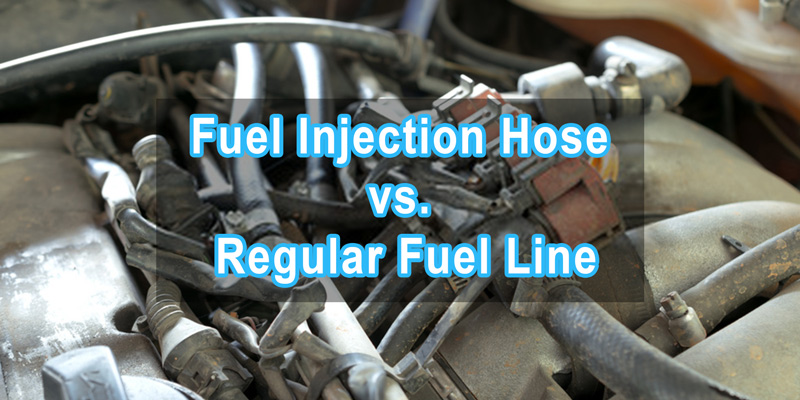As the world moves towards a more sustainable future, alternative fuels like biofuels are gaining more attention. However, their transfer and delivery require specialized equipment to ensure safe and efficient operations. This is where fluoroelastomer fuel injection hoses come in as a reliable and versatile solution.

Fluoroelastomer (FKM) is a synthetic rubber known for its excellent chemical resistance, high-temperature stability, and low gas permeability. These properties make it an ideal material for hoses used in fuel transfer and injection applications. FKM hoses can handle a wide range of fuels, including gasoline, diesel, biodiesel, and ethanol, with minimal risk of degradation or leakage.
One of the primary advantages of FKM hoses over other materials is their low permeation rate. Permeation refers to the ability of a substance to diffuse through a solid material. In the context of fuel hoses, permeation can lead to evaporation, fuel loss, and emissions of volatile organic compounds (VOCs). FKM has a very low permeation rate, meaning that it can minimize fuel loss and help meet regulatory requirements for emissions control.
In addition to low permeation, FKM hoses offer high chemical stability, ensuring compatibility with a wide range of fuels and additives. They can withstand exposure to harsh chemicals, such as alcohols, acids, and oils, without degradation or corrosion. This makes them a reliable choice for use in demanding fuel transfer and injection applications.
FKM hoses come in different configurations to suit different needs. A standard fuel injection hose typically has a working pressure of up to 225 psi and is suitable for use in gasoline and diesel fuel systems. For more demanding applications, such as biofuel or methanol injection systems, high-pressure FKM hoses are available, with ratings of up to 400 psi.
Another feature of FKM hoses is their resistance to heat and abrasion. They can operate in temperatures ranging from -40°C to 150°C, making them suitable for use in both hot and cold environments. They also have good resistance to wear and tear, ensuring long service life even in harsh operating conditions.
When it comes to fuel transfer and injection, safety is of utmost importance. FKM hoses comply with various international standards, including the SAE J30R9 and J30R14T1 for high-performance fuel injection hoses. These standards specify requirements for hose construction, material properties, and performance testing, ensuring that FKM hoses meet stringent quality and safety standards.
In conclusion, FKM fuel injection hoses offer a reliable and versatile solution for fuel transfer and injection applications. With their low permeation, high chemical stability, and resistance to heat and abrasion, they can handle a wide range of fuels and additives without degradation or leakage. Whether used in gasoline, diesel, or biofuel systems, FKM hoses provide a safe and efficient means of delivering fuel to engines and other equipment. As the world transitions towards more sustainable fuels, FKM hoses can help ensure that the transition is done safely and efficiently.